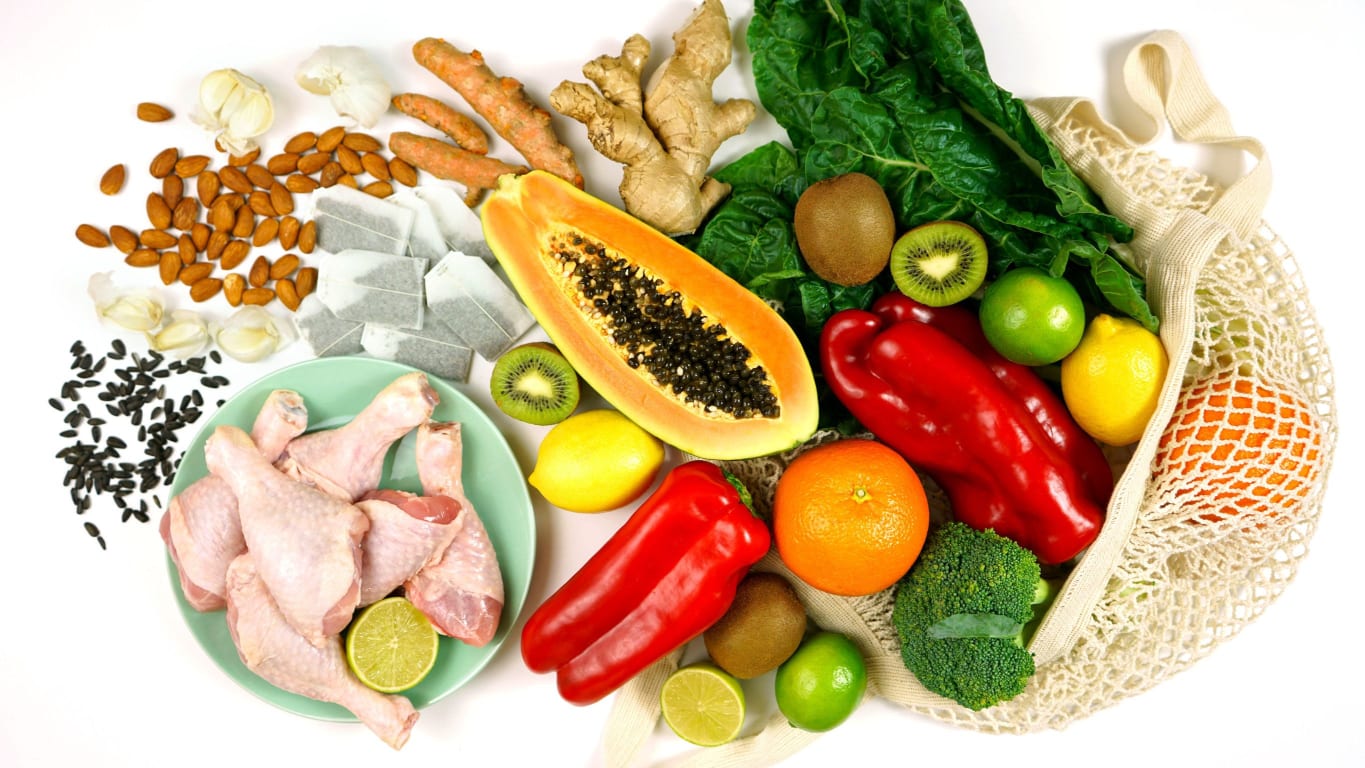This mental health week is the perfect time to think about how we look after our minds.
Some may need to seek professional support, but for those simply feeling overwhelmed, anxious or unhappy, here are a few strategies to get started.
As well as affecting us on an emotional level, food provides key nutrients that are vital for optimal brain function
1. Decluttering
Mess and visual chaos can contribute to stress, anxiety, low mood, low energy levels, and even poor decision making, so it stands to reason that decluttering the home can help declutter the mind.
Vicky Silverthorn, a professional organiser and the author of Start with Your Sock Drawer, has observed the benefits many times over.
“I’ve seen dramatic, life changing differences in people’s mood,” she says. “Their shoulders go down, their stance and their whole body language looks different…and their head space is in such a better place.”
To start, Silverthorn says focus on the quantity of stuff you have.
“The less you have, the easier it is. Every single item in your home is dependable on you…and that’s a big responsibility. You have to control it.”
Decluttering can also help to create mental space for better habits.
Silverthorn says: “When you’ve decluttered your kitchen and your surfaces, it inspires you more to cook fresh — you have more room to prepare, you have clarity in your head. I believe I’m more likely to eat healthy when my kitchen’s decluttered.”

2. Gratitude
Practising gratitude can help us nurture a happier mindset.
By directing our focus and energy on the positives in life, no matter how small they may appear, we can begin to nudge out negative thoughts and beliefs and, as a result, tend to be happier and more satisfied.
Just 10 minutes at the end or beginning of each day to reflect on the things we’re grateful for may be all that is needed to flip our thinking from glass half empty, to glass half full.
The benefits of practising gratitude are also supported by scientific research.
In one study of 293 adults seeking university-based psychotherapy services, it was found that those tasked with writing gratitude letters reported significantly better mental health four and 12 weeks after their writing exercise ended, compared with those who wrote about negative experiences or only received counselling.
Researchers at the University of Manchester also found that grateful people sleep better and longer: an essential component of good mental wellbeing, and another reason to put pen to paper before turning out the light.

3. Sleep
Many of us will have experienced the mental health effects of a bad night’s sleep: from low mood and poor concentration, to anxiety and general all-round crankiness.
Take time to wind down before bed — whether by reading a book, having a soak in the bath, or doing some meditation.
Also, have a set bed time and wake-up time — a fluctuating schedule can interrupt your body’s natural sleep rhythm.
Getting your environment right is important, so make sure your bedroom is comfortable and free from distractions. Avoid using electronic devices before bed.
Limit caffeine, sugar and alcohol, as these can interfere with sleep quality and duration.

4. Laughter
Those who say laughter is the best medicine may well be on to something.
Laughter not only gives muscles a good workout, it’s also a great stress reliever that can help to lower stress hormones such as cortisol.
By triggering the release of endorphins — or happy ‘hormones’ — in the brain, it can make us feel happier, more relaxed and uplifted.
So whether it’s watching or listening to some comedy or being around some exceptionally funny friends, add some laughter to your life.
You could even join a laughter yoga class, which incorporates a series of laughter-based exercises.
Founded in Mumbai, India in 1995 by Dr Madan Kataria — a then stressed-out medical doctor and editor of a health magazine — laughter yoga is now practised internationally.

5. Stillness
Practised daily, meditation and mindfulness may help to ease stress, anxiety and symptoms of depression, while promoting happiness, calm and improved self-esteem.
Mindfulness can simply mean directing attention to the present moment; observing breath, physical sensations, or thoughts and feelings without conscious judgement.
Group classes are widely available, but meditation and mindfulness can be practised pretty much anywhere at any time, alone or with others.
Apps such as Calm and Headspace can also help people hone their skills at home.
One of the best things, however, is that it doesn’t require months of effort to reap the benefits; one study reported a clear reduction in anxiety after just one session.

6. Exercise
Exercise is well known to have mental health benefits, but you don’t have to be a fitness fanatic to reap the benefits.
Whether it’s running, walking, yoga or dancing, simply moving your body can help clear the mind, relieve stress and improve your mood — especially if you take it to the great outdoors.

7. Nutrition
As well as affecting us on an emotional level, food provides key nutrients that are vital for optimal brain function.
Olga Preston, a registered nutritional therapy practitioner at ION’s Brain Bio Centre, says to eat a ‘rainbow’ — lots of colourful foods that provide an array of different nutrients to support mood and mental wellbeing.
Include sources of omega-3 essential fatty acids, especially EPA (eicosapentaenoic acid) and DHA (docosahexaenoic acid), found in oily fish: salmon, mackerel, anchovies, sardines and herring (think SMASH). Vegetarians can obtain these from walnuts, chia and flax seeds, and supplements.
Protein is also required to supply the amino acid building blocks for key neurotransmitters. Good options include chicken, turkey, fish, lamb, beef, eggs, tofu, nuts, seeds, lentils, beans, chickpeas, quinoa and peas, says Preston.
And not forgetting vitamin D — the ‘sunshine’ vitamin. Although it can be obtained from some foods, , getting it from sunlight means getting fresh air at the same time — so get outside in nicer weather and feel the sun’s rays on your skin (without burning, of course).
By adding in more fresh and colourful whole foods, we can also start to crowd out the choices that don’t make us feel so good in the long term; such as sugary or ultra-processed foods.

Enjoyed this article?
Check out this article on using writing to combat anxiety
For articles and recipes subscribe to Optimum Nutrition
Discover our courses in nutrition






